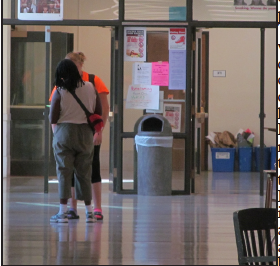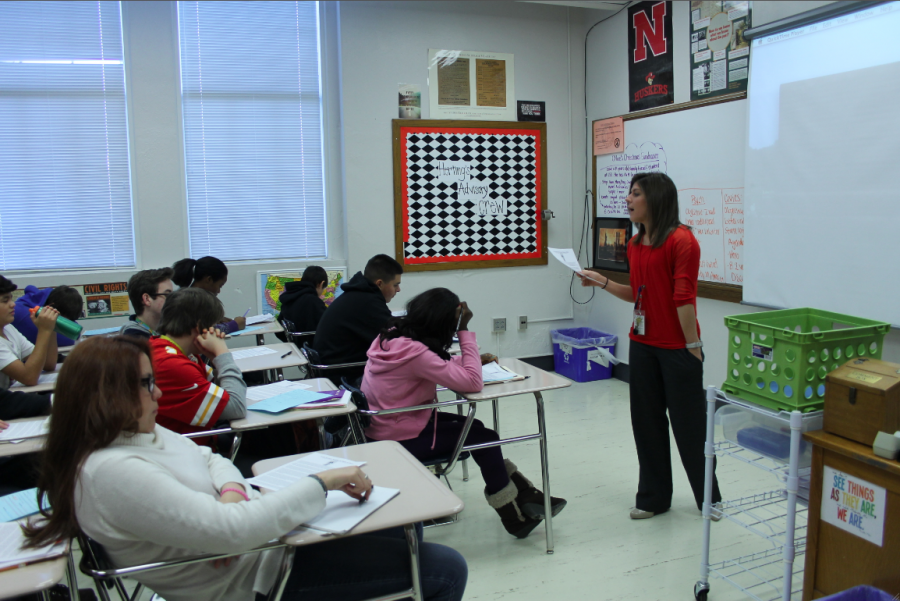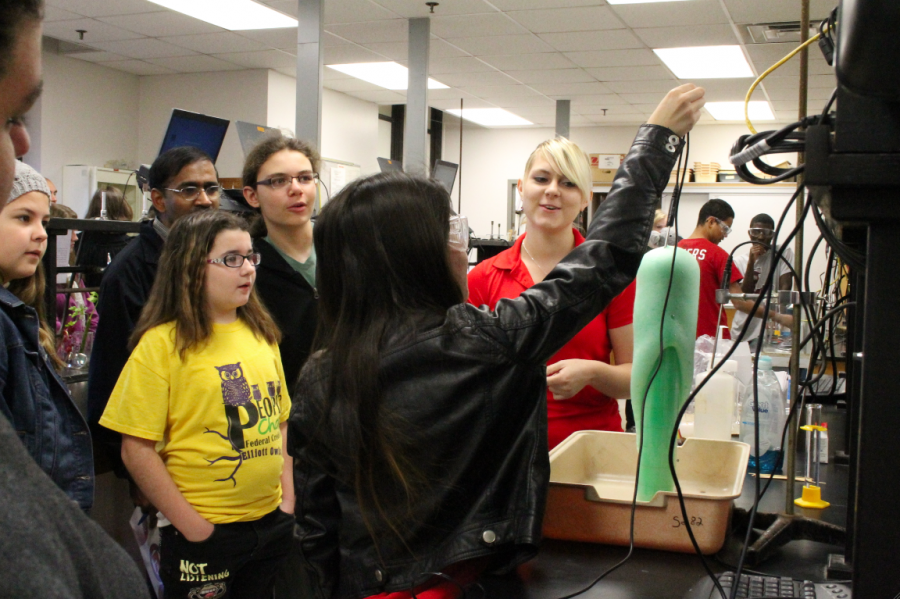
By Ky Johnson
When Social Studies Teacher, Andrew Bargen has his broom out, the students of Lincoln High know that they better be getting themselves to class on time. Often times, students will be sprinting to class, pushing people out of the way, and squeezing through the crowds, in attempts to make it to class before that bell rings and they have a detention the next day after school. Tardy Sweeps have become the most feared thing in this school because, let’s be honest, no one wants to have to stay after for 30 minutes without any talking, eating, or sleeping.
Tardy Sweeps began in January of 2013 after the administrators and teachers of Lincoln High decided that the number of students skipping/being late to class, was absolutely too high. “In 2011-12, we had over 54,000 tardies, and we just felt like as a school (teachers and administrators) that was a lot and that it was affecting a lot of things.”Associate Principal, Mark Larson said. They began planning exactly how to fix the problem in during the 2012 school year. Not only were students missing out on their learning, but it was also affecting the safety of the students as well as the climate and culture of Lincoln High. “We want Lincoln High to be a place where kids come to learn, and that’s their focus,” Larson said. “We want school to be a fun place as well but when the school bell rings we want the climate to be, ‘Alright, I’m ready to get to work; I’m ready to learn.’”
The idea of sweeping the halls for tardy students came through research of how other schools in the country were making sure that every student was trying to get to class on time. At first, Lincoln High was really looking into getting a computer software that would print out passes for students to go to class that also included when they had detention. If a student was late to their class (any class), they would make their way over to one of the computers and scan their ID. The computer system would mark their name down and then print out the detention slip. 3 or 4 schools in Omaha have this software but Lincoln High, unfortunately, was told no by the district to purchase them. With this, Lincoln High decided to keep the idea of Tardy Sweeping and just do them manually. Although, instead of being swept every period (which most of the other schools do), the administrators and teachers select a few periods each day to perform a sweep based on data that they have been collecting.
During a tardy sweep, teachers will close and lock their doors as soon as the bell rings and the only way a student can get into their class is if they have a pass; either from a teacher or a detention slip. The student must go to their assigned 30 minute detention, this could either be on the day they received it or sometime during the next few days. IF a student cannot make their scheduled detention they are supposed to go and talk to their administrator to see if there is any plan that can be made. If a student has an after school activity, they MUST go to their detention. “Being part of an after school activity, like a sport, a play, or a musical group is a privilege. I would say its part of that person’s responsibility to serve consequences to them being late to class before they can go to that practice or activity.” Larson said.
Tardy Sweeping, overall, has been quite successful. When they first started sweeping, there were 30-40 detentions being handed out during each sweep. This year, the average of detentions handed out during each tardy sweep is between 20 to 25. The numbers of tardies since last year has decreased from over 4,000 to know about 2,800 tardies during the first three weeks of school. “We feel like there is a sense of urgency to get to class and the warning bell means something now,” Larson says. “We want our kids to feel as if the first couple minutes of each is important. I feel as if this sets that expectation.”













